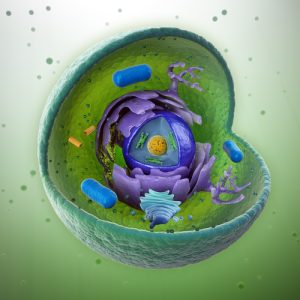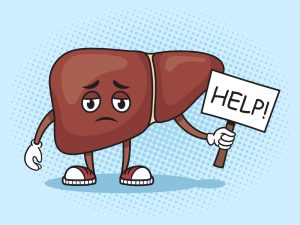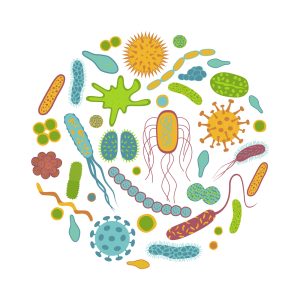 Cellular Health – People often find it hard to understand health information. We try to fix that by giving you not only simple definitions but understandable concepts so you can learn the information, and you can improve and maintain your health.
Cellular Health – People often find it hard to understand health information. We try to fix that by giving you not only simple definitions but understandable concepts so you can learn the information, and you can improve and maintain your health.
What is cellular regeneration and its relationship to nutrition?
The body is comparable to a city that is constantly under renovation.
The cells of the body are comparable to building blocks that need regular replacement.
Your body is constantly rebuilding itself. Every day, millions of your cells are replaced with new ones. This rebuilding process requires specific materials, which you get from your diet.
What are Some of the Things does this Rebuilding Includes?
Proper cellular health creates skin renewal, healing, muscle recovery and physical performance. Supporting cellular health can help maintain vigor and vitality even while aging.
Are Your Cells Healthy?
The indicators of unhealthy cell restoration are:
- Low energy levels
- Slow wound healing
- Poor skin appearance
- Slow exercise recovery
- Poor sleep quality.
Unhealthy cell regeneration is like hiring a contractor and asking him to build you a perfect replica of the Taj Mahal. He could do it. He is that good. He knows the tools of his trade. But the only materials you give him are plywood and nails. He would do the best he could, but he wouldn’t build that perfect replica. And it wouldn’t stand up the way the original has.
Well, why would your body behave differently? If you only give it sugar, food additives, and an imbalance of what it needs, it isn’t going to build really good cells that are capable of doing their job.
What Can You Do?
Here are some questions to ask yourself:
- What does your typical daily meal pattern look like?
- Which vegetables and fruits do you regularly eat?
- How much protein do you typically consume?
- What are your main sources of healthy fats?
You can then start by changing how you eat and what you eat to provide your body with better nutrition every day. For instance:
- Ensure you eat regularly and don’t skip meals
- Make sure you eat breakfast to power up your body for the day
- “Eat the rainbow” so you are eating fruits and vegetables of different colors every day, such as adding spinach to your morning smoothie and berries to your breakfast
- Consume healthy fat by adding avocado to your sandwich
- Eat some protein at every meal.
- Meal planning should revolve around what your body needs.You can evaluate your progress of providing your body with better nutrition and improving your cellular health by monitoring symptom improvement, energy level and sleep quality. Focus on the gradual implementation of changes and celebrate small victories for motivation and compliance.
Want to Know if You are Feeding your Body for Health or Health Problems?
Poor nutrition leads to cellular degeneration which leads to degenerative health conditions. What you eat and drink every day really does make a difference to how you feel, how long you will live, and your quality of life.
Recommended:
Improve Your Health with the “Understanding Nutrition and How to Eat for Health” Program
You can dramatically improve your health, and the health of your family, by knowing and applying basic, true, nutritional data. Find out the nutritional, dietary and lifestyle changes that will help you achieve thriving health.
You can find out how to eat for better cellular, gut and metabolic health.
Click here to learn more about this Understanding Nutrition and How to Eat for Health Program.

 Recently, there are quite a few ads praising the weight loss gotten from injecting a drug into your stomach. It is referred to as Pharmaceutical Weight Loss.
Recently, there are quite a few ads praising the weight loss gotten from injecting a drug into your stomach. It is referred to as Pharmaceutical Weight Loss. Make America Healthy Again – The United States is facing an unprecedented health crisis that threatens the well-being of millions of Americans. Over the past five decades, the nation has witnessed a dramatic rise in chronic diseases.
Make America Healthy Again – The United States is facing an unprecedented health crisis that threatens the well-being of millions of Americans. Over the past five decades, the nation has witnessed a dramatic rise in chronic diseases. (fat, carbs and protein) content. They provide phytonutrients, fiber, and antioxidants which contribute to overall health.
(fat, carbs and protein) content. They provide phytonutrients, fiber, and antioxidants which contribute to overall health. Purelife Care+, is a natural supplement that works at the cellular level to improve a fatty liver, liver health, gut health and a healthy metabolism.
Purelife Care+, is a natural supplement that works at the cellular level to improve a fatty liver, liver health, gut health and a healthy metabolism. The liver is the major organ for detoxification. It detoxifies, by metabolizing toxins and/or secreting the toxins out of the body. A damaged fatty liver cannot work to do its job.
The liver is the major organ for detoxification. It detoxifies, by metabolizing toxins and/or secreting the toxins out of the body. A damaged fatty liver cannot work to do its job.
 Camel milk contains high proportions of anti-bacterial and anti-viral substances, antioxidants and immune system boosters.
Camel milk contains high proportions of anti-bacterial and anti-viral substances, antioxidants and immune system boosters. There are a lot of words to understand when it comes to metabolism and your health and what you should do to build a healthy metabolism. Here are a few more terms.
There are a lot of words to understand when it comes to metabolism and your health and what you should do to build a healthy metabolism. Here are a few more terms.